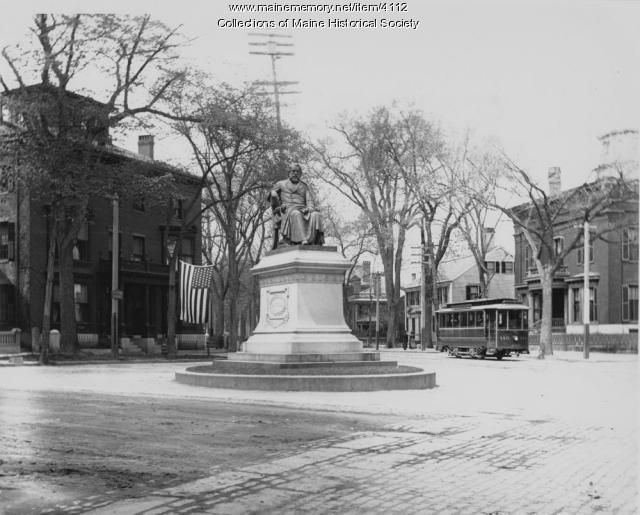Keywords: americanization
Item 48818
Adult Americanization class, Portland, 1924
Contributed by: Maine Historical Society/MaineToday Media Date: 1924 Location: Portland Media: Glass Negative
Item 48820
Portland Americanization class, 1924
Contributed by: Maine Historical Society/MaineToday Media Date: 1924 Location: Portland Media: Glass Negative
Item 41782
80-84 Cross Street, Portland, 1924
Owner in 1924: American Railway Express Co. Use: Stable
Item 72444
144-226 Read Street, Portland, 1924
Owner in 1924: American Can Company Use: Factory
Item 109151
American Legion Building, Wilton, 1950
Contributed by: Maine Historical Society Date: 1950 Location: Wilton Client: American Legion Architect: Eaton W. Tarbell
Item 109424
Plan of Office for American Express Co., Lewiston, ca. 1912
Contributed by: Maine Historical Society Date: circa 1912 Location: Lewiston Client: American Express Co. Architect: Coombs Brothers
Exhibit
"Twenty Nationalities, But All Americans"
Concern about immigrants and their loyalty in the post World War I era led to programs to "Americanize" them -- an effort to help them learn English and otherwise adjust to life in the United States. Clara Soule ran one such program for the Portland Public Schools, hoping it would help the immigrants be accepted.
Exhibit
From French Canadians to Franco-Americans
French Canadians who emigrated to the Lewiston-Auburn area faced discrimination as children and adults -- such as living in "Little Canada" tenements and being ridiculed for speaking French -- but also adapted to their new lives and sustained many cultural traditions.
Site Page
View collections, facts, and contact information for this Contributing Partner.
Site Page
Franco-American Heritage Center at St. Mary's
View collections, facts, and contact information for this Contributing Partner.
Story
Alex Mouzas: Passionate about sharing his Greek-American roots
by Biddeford Cultural & Heritage Center
A personal, in-depth look into the life and contributions of area Greek-Americans
Story
An Asian American Account
by Zabrina
An account from a Chinese American teen during the COVID-19 pandemic.
Lesson Plan
Immigration: Challenges and Opportunities in Maine
Grade Level: 9-12
Content Area: Social Studies
Learn about immigration in the United States using primary sources from Maine Memory Network and the Library of Congress.
Lesson Plan
Grade Level: 6-8, 9-12, Postsecondary
Content Area: Social Studies
This lesson presents an overview of the history of the Chinese/Chinese Americans in Maine and the U.S. including some of the factors that led to Chinese immigration to the U.S., the history of the Chinese Exclusion Act, a look into the xenophobia, racism, and discrimination many Chinese Americans have experienced and continue to experience, and the contributions of Chinese Americans to community life and culture in Maine.




















